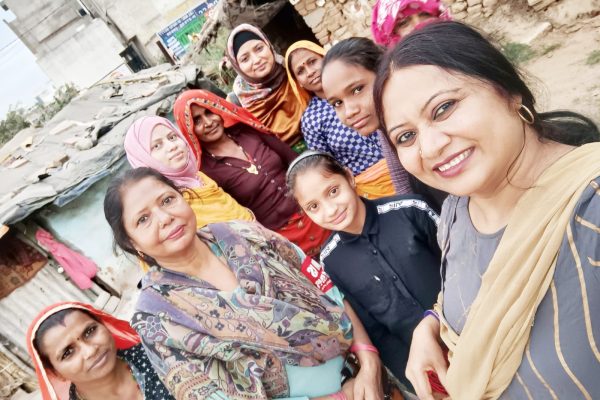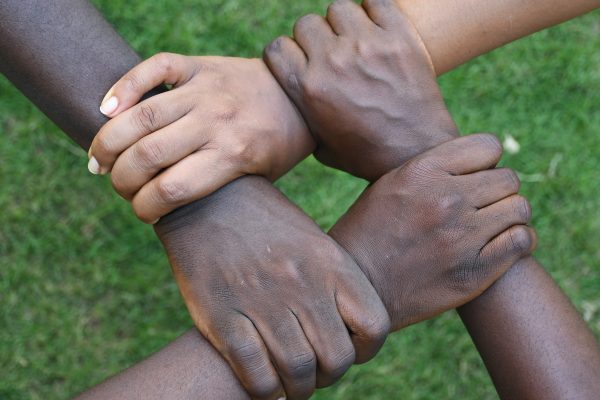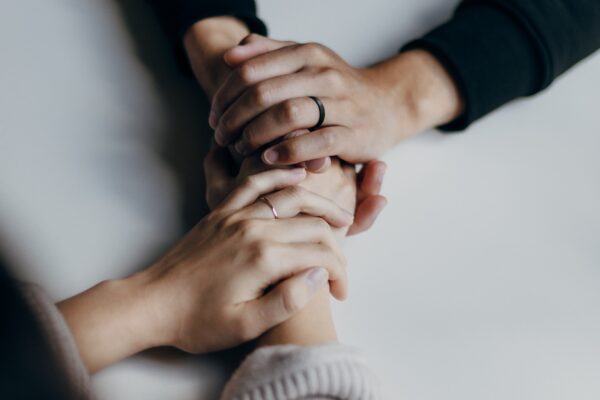From the recognition of existing inequality emerges an opportunity to take stock of our own abilities and privileges, and in doing so, we can choose to answer the mass call-to-action that the pandemic has addressed to each of us, a call to give within our own capacities.
In the past couple of years, realities have emerged that may have been unknown to many of us before. A global pandemic ripped away the curtain and revealed to us the machine at work on the other side. We have been forced to confront the underbelly of the beast, and turn our attention towards the structures of class, race, and gender that are made to preserve the world as it is: unequal.
There is suffering. There is war and displacement and violence and unemployment and racism and climate change and unnamable hardship. And it is easy to feel powerless in the face of it all.
But from the recognition of existing inequality emerges an opportunity to take stock of our own abilities and privileges, and in doing so, we can choose to answer the mass call-to-action that the pandemic has addressed to each of us, a call to give within our own capacities.
Starting simply, it could be a call to clean out your closet.
The global population consumes about 80 billion new pieces of clothing every year. As we accumulate more items, we also discard them at alarming rates. In the U.S. alone, 11 million tons of clothes are thrown away each year. This means that the average individual American generates 82 pounds of textile waste each year. We know that for the most part, fast fashion is a product of exploitation, relying on the labour of poor working class people in the Global South. We need not look any further than the tags at the backs of our necks to realise this. Changing your habits, becoming an environmentally, economically conscious shopper is one thing you can do to reduce the harm done to vulnerable people around the world.
Of course, ethical consumption carries a higher price tag than fast fashion. The reality is that some of us cannot afford not to shop sustainably, And while this may not be within reach for us, cleaning out our closets can be. Rather than discarding forgotten pieces of clothing, consider donating them to organisations that serve people in need. Just make sure they are clean and intact so that there is dignity and love in your act of giving. Remember that items do not become waste until they are wasted.
It could be a call to donate blood. We can consider what we can give from our own bodies.
Blood is a precious resource with the power to directly save lives, one with a limited shelf life. The supply at healthcare facilities are in need of replenishment constantly by those generous enough to donate blood. And every two seconds, someone is in need of blood transfusion. This past January, The Red Cross declared its first ever blood crisis. Since the start of the pandemic, the organisation has been experiencing staffing shortages and cancelled blood drives. This, coupled with fear of infection, has resulted in a 10% decrease in the number of blood donors. Coinciding with the Omicron surge, the recent blood crisis spells real danger for people who have been in accidents as well as those who require blood more frequently, such as patients with forms of cancer or blood disorders. The consequence is some of these patients receive delayed treatment.
The Red Cross has announced a need for people of all blood types to roll up their sleeves, especially those with types O positive and O negative blood. Find the nearest location to you and consider giving blood if you can. Your blood donation can save up to three lives.
Who is Hussain is answering this call to action later this year by planning to hold the world’s largest day of blood donations. The Global Blood Heroes campaign will take place on August 27th. Register your interest and find out more about how you can contribute here.
It is a call to advocate for the most vulnerable. Give your voice.
Now more than ever, it is important we lend our voices to people and causes that have been historically silenced. Let your values shape what this kind of work looks like for you. Listen to what you feel frustrated or angered by. Translate that feeling into positive action. There is power in letting yourself be moved and passing it onto others. This is how movements are born, how they build momentum and make progress.
Think about the different roles you play in your everyday life, and the spaces available to you within which you may find opportunities to reorient your behavior, whether this be as a doctor in an examination room, an employee within a larger corporation, a bus driver, a teacher, a student, a parent, or a friend. We don’t always have to step out of ourselves and take to the streets to create change, though that is a powerful exercise in advocacy. We can also occupy and reclaim the familiar realms of our everyday lives, these spaces where we already work and live, as opportunities to advance justice and equity.
Perhaps most importantly, it is a call to reallocate your time and energy.
In a globalised world where capitalism is king, time and energy are exploitable, meant for the kind of labour that benefits the few at the expense of the majority. They are priceless resources that can be redirected to allow ourselves moments of creativity, connection, and care. This is how we show people that they matter. We show them that despite the intent of systems to racialize and otherize us in feedback loops that feel inescapable, we are committed to removing one another safely by affirming our value as people.
Giving is an inherently political act. It is a staunch rejection of suffering and inequality. It subdues status quos. It is the redistribution of time, energy, and wealth on an individual level that is infectious enough to create change at a global scale. Who is Hussain has created the #Give campaign, an initiative which encourages doing good in ways both small and large throughout this month. Each day, Who is Hussain posts a new task aimed at inspiring the practice of giving. As you do so, begin to ask yourself what your capacity to give is, and what calls to action you’d like to commit yourself to answering.




